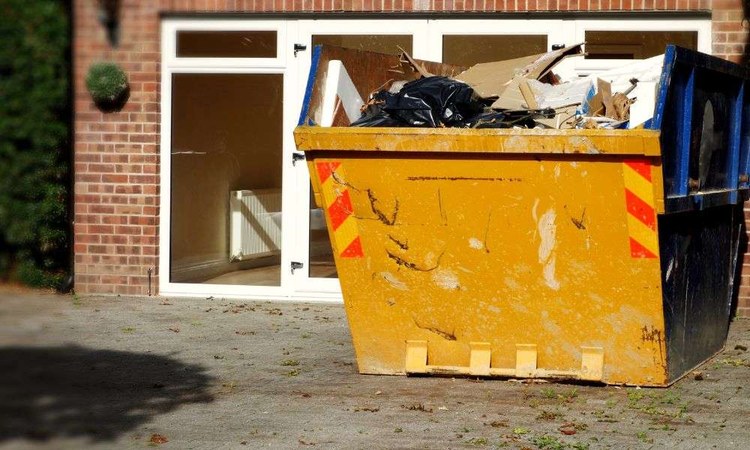What to Know About Renting a Dumpster
Renting a dumpster involves selecting an appropriate size, understanding rental periods and being aware of accepted materials. Options may range from 10-yard to 20-yard containers. This guide explains how garbage dumpster rental works for residential or project-based use.

Why Do You Need a Dumpster Rental?
Dumpster rentals serve multiple purposes and can be beneficial in various scenarios. Home renovations often generate significant amounts of debris, making a dumpster essential for efficient waste removal. Large-scale cleanouts, such as when moving or decluttering, also benefit from having a centralized waste collection point. For construction sites, a dumpster is practically indispensable, providing a safe and organized way to dispose of materials. Even for landscaping projects or roofing jobs, having a dumpster on-site can greatly simplify the cleanup process and save time and effort in hauling away waste.
What is Dumpster Rental and How Does It Work?
Dumpster rental is a service that provides temporary use of a large waste container for disposal of materials. The process typically involves selecting a dumpster size, scheduling delivery and pickup dates, and paying a rental fee that covers the container use, transportation, and disposal costs. When you rent a dumpster, the provider will deliver it to your specified location, where it remains for the agreed rental period. During this time, you can fill the dumpster with allowed materials. Once the rental period ends or the dumpster is full, the company will pick it up and properly dispose of the contents.
Different Dumpster Sizes Explained: Which One Do You Need?
Understanding dumpster sizes is crucial for selecting the right container for your project. Sizes typically range from 10 to 40 cubic yards, with the most common options being:
-
10-yard dumpsters: Ideal for small cleanouts or minor home improvement projects.
-
20-yard dumpsters: Suitable for medium-sized renovation projects or large cleanouts.
-
30-yard dumpsters: Best for major home remodeling or new construction.
-
40-yard dumpsters: Typically used for commercial projects or very large residential cleanouts.
To choose the right size, consider the scope of your project, the types of materials you’ll be disposing of, and any space constraints at your location. It’s often better to opt for a slightly larger size to avoid overfilling or needing multiple rentals.
What Materials Can You Put in a Rented Dumpster?
While dumpsters can accommodate a wide range of materials, there are important restrictions to be aware of. Generally accepted items include household junk, construction debris, yard waste, and furniture. However, hazardous materials such as paint, oils, batteries, and chemicals are typically prohibited. Electronic waste, appliances containing refrigerants, and tires may also be restricted or require special handling. It’s crucial to clarify with your rental provider what materials are allowed to avoid additional fees or safety hazards.
How Long Can You Keep a Rented Dumpster?
Rental periods for dumpsters can vary depending on the provider and your specific needs. Standard rental durations often range from 7 to 14 days, but many companies offer flexible options. Some may provide short-term rentals for as little as 3 days, while others allow extended periods of up to a month or more. If you need the dumpster for longer than the initial rental period, most providers offer extensions for an additional fee. It’s important to accurately estimate your project timeline to avoid unnecessary costs or the inconvenience of having to reschedule a pickup.
What Are the Costs Associated with Dumpster Rental?
The cost of renting a dumpster can vary significantly based on several factors, including the size of the container, rental duration, location, and disposal fees. On average, prices for a week-long rental can range from $300 to $800, with larger sizes and longer rental periods costing more. Additional fees may apply for exceeding weight limits, extending the rental period, or disposing of prohibited items.
Here’s a comparison of typical dumpster rental costs from various providers:
| Provider | 10-Yard Dumpster | 20-Yard Dumpster | 30-Yard Dumpster |
|---|---|---|---|
| Waste Management | $300 - $400 | $350 - $450 | $400 - $500 |
| Republic Services | $275 - $375 | $325 - $425 | $375 - $475 |
| Local Hauler | $250 - $350 | $300 - $400 | $350 - $450 |
Prices, rates, or cost estimates mentioned in this article are based on the latest available information but may change over time. Independent research is advised before making financial decisions.
When budgeting for your dumpster rental, be sure to inquire about any potential additional fees and get a detailed quote that includes all costs. Some providers offer all-inclusive pricing, while others may charge separately for delivery, pickup, and disposal. By understanding the full cost structure, you can make an informed decision and avoid unexpected expenses.
In conclusion, renting a dumpster can significantly simplify waste management for various projects. By understanding the rental process, choosing the right size, knowing what materials are allowed, and being aware of rental durations and costs, you can ensure a smooth and efficient experience. Whether you’re tackling a home renovation, managing a construction site, or conducting a major cleanout, a well-planned dumpster rental can make all the difference in keeping your project on track and your site clean and organized.




